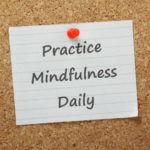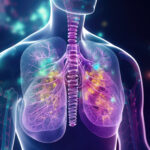Resiliency is defined by the American Psychological Association as the “process of adapting well in the face of adversity, trauma, tragedy, threats or significant sources of stress…”. We may notice that we are feeling exhaustion and/or fatigue that is associated with trying to adapt to changes related to the Covid-19 pandemic. Quarantine fatigue can emerge in different ways. We don’t have our usual opportunities for socialization to help manage stress. We may have feelings of loneliness and/or sadness, due to being less connected to the outside world.
Common symptoms of quarantine fatigue include:
- Experiencing increased irritability
- Suffering anxiety
- Feeling tense
- Insomnia or oversleeping
- Eating too little or too much
- Having a lack of motivation
- Experiencing reduced productivity
- Losing focus and concentration
- Having social withdrawal.
Our ability to maintain resiliency is necessary, but can be difficult when we are under increased stress.
How can we build resiliency and adapt to the ongoing changes in our lives due to Covid-19?
BUILD CONNECTIONS – We’re all in this together! Seek support from others when needed. Give support to those in need. This could be as simple as offering a listening ear.
- Communicate with your family, friends, coworkers, caregivers and others about stress while maintaining social distancing (at least 6 feet).
- Identify things that cause stress and work together to identify solutions.
- Talk openly with about how the pandemic is affecting you.
- Ask about how to access mental health resources that might help.
FOSTER WELLNESS -Take care of yourself both physically and mentally. Be aware of the signs that you need to check in with yourself and your self-care routine.
- Identify those things which you do not have control over and do the best you can with the resources available to you.
- Increase your sense of control by developing a consistent daily routine when possible — ideally one that is similar to your schedule before the pandemic.
- Keep a regular sleep schedule
- Take breaks to stretch, exercise, or check in with your supportive family, friends, colleagues and coworkers.
- Spend time outdoors, either being physically active or relaxing.
- Take breaks from watching, reading, or listening to news stories, including social media. Hearing about the pandemic repeatedly can be upsetting and mentally exhausting
SEEK HELP when needed:
- If you feel you may be misusing alcohol or other drugs (including prescription drugs) as a means of coping, reach out for help.
- If you are being treated for a mental health condition, continue with your treatment and be aware of any new or worsening symptoms.
- As we approach the holiday season, we may be faced with difficult decisions on how we can celebrate safely. For many, the holidays are a time for gathering with loved ones. The season can also bring stress due to the demands involved. The holiday season can also remind us of losses we have experienced, resulting in emotions related to grief. These stressors may be exacerbated due to Covid-19 and the limitations for on gathering. The Centers for Disease Control (CDC) offers suggestions for gathering within these social limitations: Travel and large gatherings can increase the chance of getting and spreading Covid-19. Staying home is the best way to protect yourself and others. If you must travel, be informed of the risks involved.
Lower risk activities
- Having a small dinner with only people who live in your household
- Preparing traditional family recipes for family and neighbors, especially those at higher risk of severe illness from COVID-19, and delivering them in a way that doesn’t involve contact with others
- Having a virtual dinner and sharing recipes with friends and family
- Shopping online rather than in person on the day after Thanksgiving or the next Monday
- Watching sports events, parades, and movies from home
Moderate risk activities
- Having a small outdoor dinner with family and friends who live in your community
- Visiting pumpkin patches or orchards where people use hand sanitizer before touching pumpkins or picking apples, wearing masks is encouraged or enforced, and people are able to maintain social distancing
- Attending a small outdoor sports events with safety precautions in place
Higher risk activities – Avoid these higher risk activities to help prevent the spread of the virus that causes COVID-19:
- Going shopping in crowded stores
- Participating or being a spectator at a crowded race
- Attending crowded parades
- Using alcohol or drugs, which can cloud judgement and increase risky behaviors
- Attending large indoor gatherings with people from outside of your household
If you are having difficulty coping with the stress of the holidays, remember: build connections, foster wellness, and seek help.
-
-
- American Psychological Association, 2020
- Goessl, Leigh, “Signs You Are Experiencing Quarantine Fatigue and What to Do”, Washington Post, Aug 13, 2020
- CDC.gov, “Employees: How to Cope with Job Stress and Build Resilience During the COVID-19 Pandemic”
- Centers for Disease Control, https://www.cdc.gov/coronavirus/2019-ncov/daily-life-coping/holidays.html, October 20
-
Author: Tracy Tierney, LCSW, Oncology Social Worker, VCS, Virginia Cancer Specialists









